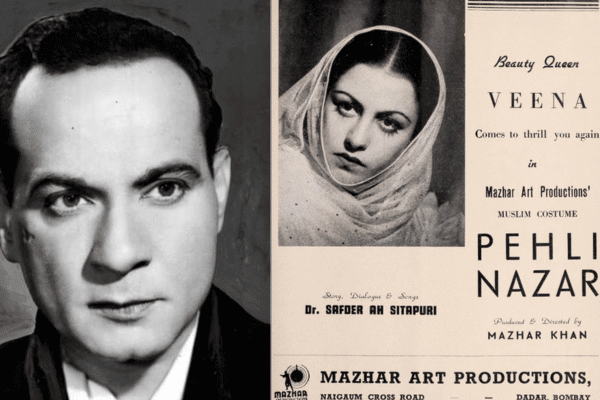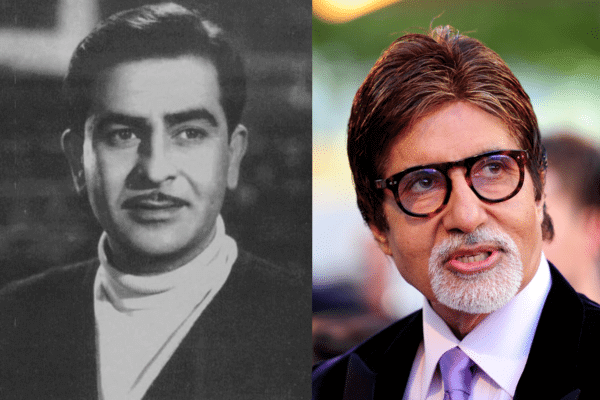His spell as one of Bollywood’s foremost playback singers is well-known, lending his unforgettable voice to at least three generations of heroes, but Mukesh’s impact was also seen in a landmark achievement beyond the film world – the Indian cricket team’s first test and series win in England.
The Ajit Wadekar-led team drew the first two tests in the 1971 series but coasted easily to victory in the third at London’s Oval, courtesy of its legendary spin trio. Facing a 71-run deficit as England came to bat for the second time, the Indians dismissed their opponents for 101 with spinner B. S. Chandrasekhar running amuck, ending up with 6 for 38 and accomplishing a run-out. India easily scored 173 to win.
And what was Chandrasekhar doing before pulling off his devastating spell? Indulging in his hobby of listening to Mukesh’s songs.
His teammates said that whenever they wanted to inspire him, humming a Mukesh song near him usually worked. Years later, Chandrasekhar, asked about what drew him to Mukesh, cited the “depth of feeling” the singer evoked and the “effect” he had on the listener.
That was the magic of Mukesh Chand Mathur, (1923-76), who was born on July 22 in New Delhi.
Mukesh, as he came to be known, was by no means a technically perfect singer and had his limitations but surmounted them through the sincerity he evoked through his sonorous voice. And then, there was the pathos he could convey – and which would have made him an outstanding singer of the blues.
However, like many of his peers, his way to success was not straight or easy. Fond of music since his childhood – even sitting outside the room where one of his sisters was being taught music to absorb the lessons, he was slated for a professional career by his father. However, his heart was set on films. A chance came when during the wedding of one of his sisters in 1940, noted actor and distant relative Motilal, heard him sing, and offered to help him get his film career off the ground.
With his patrician looks, Mukesh began as an actor-singer, as was the vogue in that era. However, both his initial ventures Nirdosh (1941), opposite the petite Nalini Jaywant, and Aadab Arz (1943) vanished without a trace, and he decided to concentrate on singing.

He got his first chance to sing for Motilal in Pehli Nazar (1945) and the song Dil Jalta Hai made him a household name.
The rendition was not easy. Mukesh couldn’t master the song’s intricacies during the rehearsals, earning the ire of composer Anil Biswas. The last straw came when he skipped a recording and took refuge in a bar. Biswas tracked him down and tried to restore him to sobriety. But when he sobbingly told Biswas that he could not evoke the necessary pain, the composer slapped him, saying this should be impetus enough. It did the trick.
However, Mukesh sang it in the style of his favourite K. L. Saigal. There is a story that a puzzled Saigal, made to listen to the record, remarked that he never remembered singing this song.
Mukesh could have ended up as another Saigal clone, but Biswas weaned him off his fixation, telling him that there is one Saigal only and there should be one Mukesh only. Music composer Naushad Ali was also instrumental in this, whilst also helping to curb Mukesh’s liquor habit by asking him whether he was also trying to outdo his idol, Saigal, in singing.

While Naushad used Mukesh for Dilip Kumar in his initial days, with the likes of Gaye Ja Geet Milan Ke (Mela, 1948), it was as the voice of Raj Kapoor which brought him prominence Awaara Hoon (Awaara,1951) – although he had a song apiece in Aag (1948) and Barsaat (1949), and in Mera Naam Joker, 1970.
Raj Kapoor called him his “voice” and “soul” and while there is no doubt that most of Mukesh’s most famous songs were for the showman, both in RK films and outside, he was equally effective for Dev Anand, Shammi Kapoor, Shashi Kapoor, Feroz Khan, Dharmendra, Vinod Khanna, Sanjeev Kumar, and many others.





